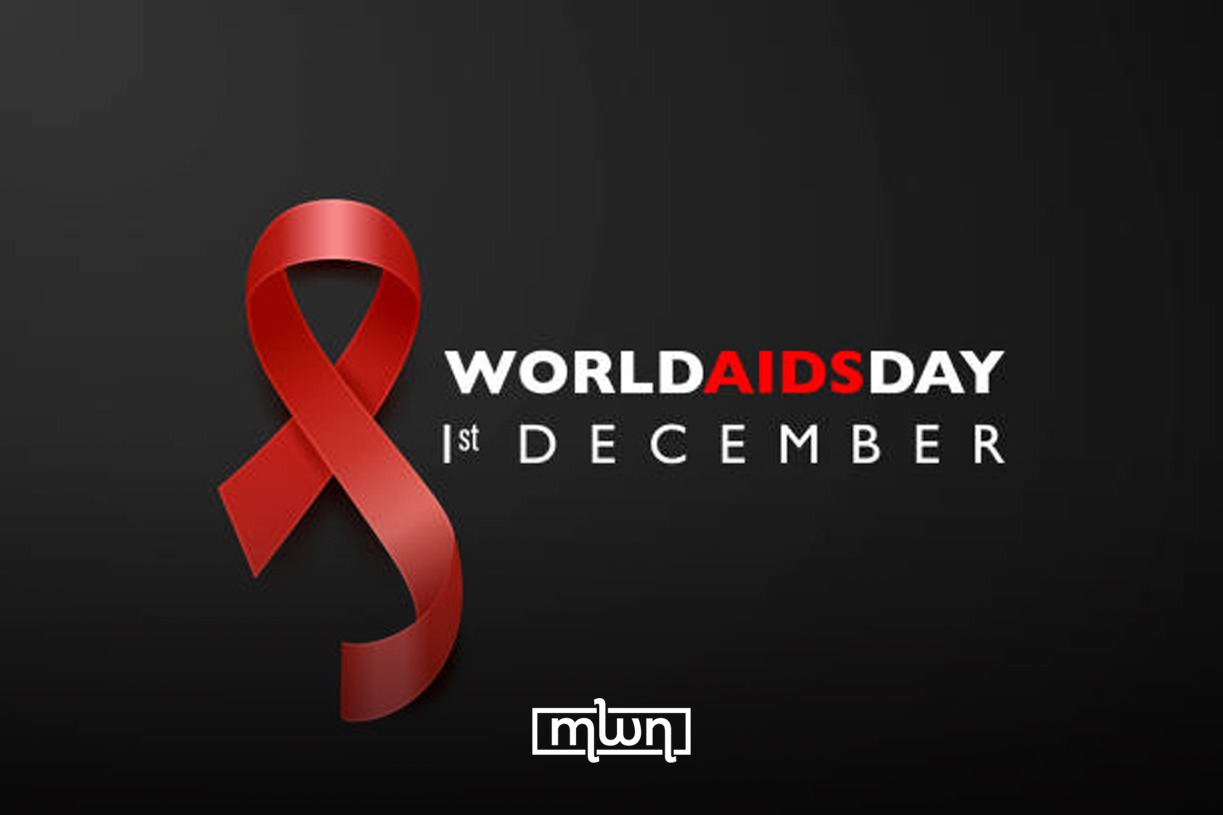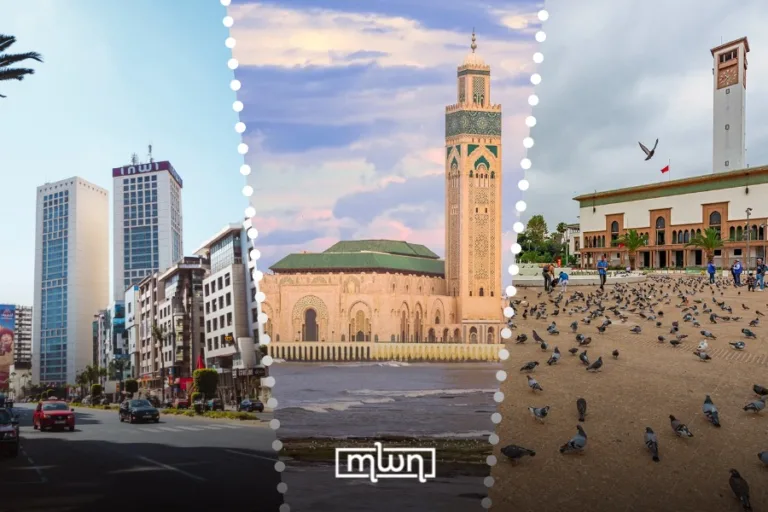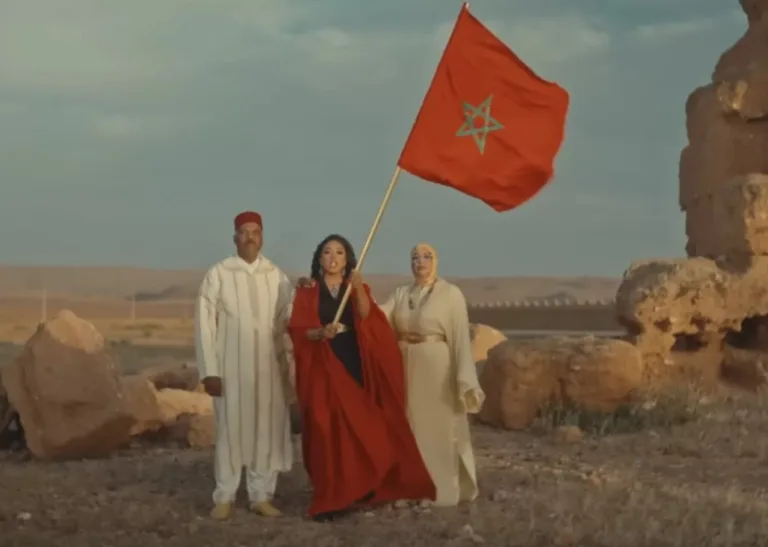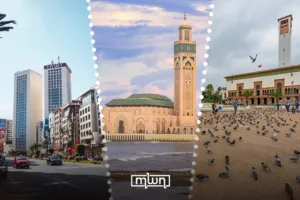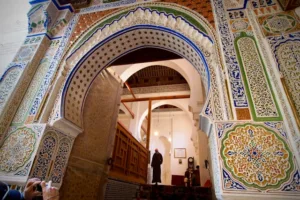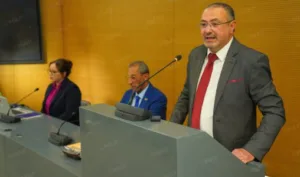The Sidaction Maroc campaign, which it timed with World AIDS Day, affirms the commitment to the driving awareness and sparking transformative change about the disease. .
Casablanca – In a world where health is as much a part of Instagram captions as it is doctor visits, it’s hard to imagine a time when conversations about diseases were whispered, or worse, ignored altogether.
But rewind to the 1980s, and you’d find a global health crisis — AIDS — met with silence, stigma, and fear. The AIDS epidemic not only devastated lives but also reshaped how society approached health conversations.
In Morocco, this evolution is exemplified by the 10th edition of Sidaction Maroc, a month-long campaign that seeks to empower young people, tackle stigma, and ensure a future of informed, proactive health advocacy.
Under the theme “Le Sida est toujours là… Ne détournons pas le regard” (AIDS is still here… Let’s not look away), this year’s Sidaction reminds us that the fight against HIV/AIDS is far from over.
A deep dive into the AIDS crisis
When AIDS emerged in the 1980s, it was cloaked in silence. The lack of knowledge, combined with widespread stigma, made it harder for people to talk about the virus.
HIV/AIDS was not only misunderstood, but it was also demonized, especially among marginalized groups like the LGBTQ+ community and intravenous drug users.
This resulted in poor public health responses and limited funding for necessary research. Many saw AIDS as a consequence of immoral behavior, reinforcing negative stereotypes and prolonging the epidemic’s devastating effects.
In response, grassroots activists and organizations took matters into their own hands. This group, including groups like ACT UP (AIDS Coalition to Unleash Power), fought back against stigmatization, organizing protests and raising awareness on a massive scale. They demanded governmental action, healthcare access, and an end to discrimination.
This is when the iconic red ribbon, symbolizing AIDS awareness and solidarity, first appeared. It marked the beginning of a public health revolution, one that pushed media and government policies to rethink their approach and address the epidemic with compassion.
A national effort to confront HIV/AIDS
While AIDS remains a global challenge, Morocco has made incredible strides in combating the virus. The country has ramped up its efforts to provide care, support, and treatment for people living with HIV.
Thanks to the efforts of organizations like the ALCS (Association de Lutte contre le Sida), Morocco has witnessed considerable progress, including the expansion of care centers.
Today, there are 40 dedicated centers across the country, compared to a much smaller number in the past. These centers play a vital role in offering health services, psychological support, and ensuring that people living with HIV have access to the treatment they need.
Rising Awareness and treatment coverage
Morocco has made remarkable progress in its fight against HIV/AIDS, reflecting the impact of sustained public health initiatives.
According to the latest statistics from Morocco’s Ministry of Health and Social Protection, HIV prevalence remains at a low 0.08%, with approximately 23,000 people living with the virus in 2023, 43% of whom are women.
However, 22% of these individuals remain unaware of their HIV-positive status—a sobering reminder of the need for expanded testing and education efforts.
A 2013 survey conducted by the same ministry highlighted a concerning lack of sexual health knowledge among Moroccan youth aged 15 to 24.
Only 28.95% of boys and 22.19% of girls reported having adequate information on sexuality, while a mere 17% of young people consistently used condoms.
This knowledge gap underscores the vulnerability of Morocco’s youth to sexually transmitted infections and highlights the importance of continuous public awareness campaigns.
The ‘Sidaction’ campaign
The Association de Lutte Contre le Sida (ALCS) has been at the forefront of addressing these challenges since 1988. Through its prevention, testing, and support initiatives, the organization remains a vital ally in the fight against HIV/AIDS.
In 2023 alone, the ALCS conducted 50,000 HIV tests, identifying 720 positive cases, and provided critical support to over 7,000 individuals living with HIV.
Additionally, their prevention programs reached 69,187 at-risk individuals in person and 10,629 online, while distributing nearly 2 million condoms and 2,797 injection kits.
Central to the ALCS’s efforts is its commitment to youth outreach and education. Its programs are designed to bridge the information gap identified in earlier studies, ensuring that young Moroccans have access to accurate and comprehensive sexual health knowledge.
The country is gearing up for one of its most significant campaigns this December: the 10th edition of Sidaction Maroc, which launched on World AIDS Day (December 1).
Under the theme “Le Sida est toujours là… Ne détournons pas le regard”(AIDS is still here… Don’t look away), the campaign focuses on raising awareness about HIV/AIDS while also gathering crucial funds for programs dedicated to prevention, education, and treatment.
These combined efforts reflect Morocco’s holistic approach to HIV/AIDS, blending medical intervention with education and community engagement.
Yet, with nearly one in four people living with HIV unaware of their status and a significant percentage of youth lacking adequate knowledge, the path to eradicating the virus remains a collective journey requiring sustained commitment.
Changing how we view health
The AIDS movement had a powerful cultural impact. The transformation of the narrative surrounding HIV/AIDS was nothing short of revolutionary.
Artists, musicians, and cultural figures used their platforms to demand attention and shed light on the disease’s human impact.
A notable example is the appointment of renowned Moroccan artist OUM as the National Goodwill Ambassador for UNAIDS in November 2024.
This announcement was made during the Taragalte Festival, held from November 1-3. The Moroccan icon’s influence and commitment to social change are expected to play a vital role in UNAIDS’ efforts to combat HIV/AIDS in Morocco and beyond.
Breaking down stigma
The revolution sparked by the AIDS epidemic continues to this day. From the red ribbon to Sidaction, the global fight against HIV/AIDS has taught us invaluable lessons about the power of transparency, empathy, and advocacy.
Morocco’s approach to HIV/AIDS, particularly its public health strategies, is a model of what happens when society comes together to tackle a crisis head-on.
Yet, the battle is far from over. The rising number of youth infections in Morocco highlights the ongoing challenges in fighting the disease, but it also speaks to the need for continued education, openness, and access to healthcare.
The lessons from AIDS activism have left us with a roadmap – health conversations must be open, inclusive, and destigmatized.
And it’s up to us, especially the younger generation, to continue breaking barriers and ensuring that no one is left behind.

